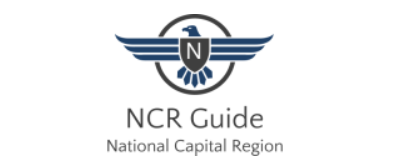Delhi is home to some of the most prestigious educational institutions in India, and every year, thousands of students from across the country and around the world aspire to secure admission in these esteemed establishments. The admission process for these institutions is highly competitive and often requires a well-thought-out strategy. In this comprehensive guide, we will walk you through the steps and provide essential information to help you navigate the admission process for Delhi’s top educational institutions.
Table of Contents
Step 1: Research and Select Your Target Institutions
Before you embark on the admission journey, it’s essential to identify the institutions that align with your academic and career goals. Delhi offers a diverse range of educational options, from world-renowned universities to specialized colleges. Here are some of the top institutions in Delhi where students from across the country and the world come to study:
- University of Delhi (DU): DU is one of India’s most prestigious universities, known for its academic excellence and vibrant campus life. It offers a wide range of undergraduate and postgraduate programs.
- Indian Institute of Technology Delhi (IIT Delhi): IIT Delhi is a premier engineering institution, consistently ranked among the best engineering colleges globally. Admission to IIT Delhi is highly competitive.
- All India Institute of Medical Sciences (AIIMS): AIIMS is the country’s top medical college and hospital, producing some of India’s finest doctors and medical professionals.
- Jamia Millia Islamia (JMI): JMI is known for its diversity and inclusivity. It offers a broad spectrum of courses, including humanities, social sciences, and natural sciences.
- St. Stephen’s College: An affiliated college of DU, St. Stephen’s is renowned for its liberal arts programs and distinguished faculty.
- Indian Statistical Institute (ISI): ISI offers specialized programs in statistics, mathematics, and computer science and is highly regarded in these fields.
- National Institute of Fashion Technology (NIFT): NIFT is the go-to institution for those pursuing careers in fashion design and technology.
- Delhi Technological University (DTU): Formerly known as Delhi College of Engineering, DTU is a leading engineering college offering a wide array of engineering disciplines.
Step 2: Meet Eligibility Criteria
Each institution in Delhi has its eligibility criteria for various courses. It is crucial to thoroughly review the eligibility requirements for the program you wish to pursue. These criteria may include academic qualifications, entrance exam scores, and age restrictions. Make sure you meet all the prerequisites to be eligible for admission.
Step 3: Prepare for Entrance Examinations
Many programs at Delhi’s top educational institutions require students to take entrance examinations. These exams are highly competitive, and success in these tests is often the key to securing admission. Here are some of the common entrance exams for different fields:
- Common Admission Test (CAT): CAT is the gateway to many prestigious management programs, including those at the Indian Institutes of Management (IIMs).
- Joint Entrance Examination (JEE): JEE is the entrance exam for undergraduate engineering programs at IITs, including IIT Delhi.
- National Eligibility cum Entrance Test (NEET): NEET is the entrance exam for undergraduate medical and dental programs, including MBBS and BDS.
- Graduate Aptitude Test in Engineering (GATE): GATE is required for admission to postgraduate engineering programs, including M.Tech at IIT Delhi.
- DU Entrance Test: Delhi University conducts its entrance tests for various undergraduate and postgraduate programs.
- NET/JRF: The National Eligibility Test (NET) and Junior Research Fellowship (JRF) exams are essential for admission to Ph.D. and research programs in various disciplines.
It’s crucial to start your exam preparation well in advance and consider enrolling in coaching programs or using online resources to enhance your performance.
Step 4: Application Process
Once you’ve identified your target institutions and prepared for the entrance exams, the next step is the application process. Be sure to adhere to these general guidelines:
- Research the application deadlines for your chosen programs. These dates can vary, so make a schedule to ensure you don’t miss out.
- Prepare all the required documents, including academic transcripts, certificates, identification proof, and passport-sized photographs.
- Fill out the application forms carefully, providing accurate information. Any false information can result in disqualification.
- Pay the application fee as per the instructions provided by the institution. Keep a record of the payment receipt.
- If you are required to submit an entrance exam score, ensure that you’ve received the results by the time of application.
Step 5: Entrance Exam and Interview
For programs that include an interview as part of the admission process, be prepared to demonstrate your knowledge and passion for your chosen field. Many institutions also conduct group discussions and written exams as part of the selection process. These interactions are opportunities for the admission committee to gauge your suitability for the program.
Step 6: Merit Lists and Counseling
After completing the entrance exams and interviews, institutions will release merit lists. These lists highlight the selected candidates for the program. If your name appears on the merit list, congratulations! You are one step closer to securing admission. Be sure to check the institution’s website for updates and counseling schedules.
Step 7: Enrollment and Commencement
Once you’ve been offered a seat, follow the institution’s instructions for enrollment. This may involve paying the admission fee, submitting additional documents, and attending an orientation session. The academic year typically begins in August or September, so be ready to start your educational journey.
Important Dates (Tentative):
- Application Submission: May to June
- Entrance Examinations: June to July
- Interview and Selection: July to August
- Enrollment and Commencement: August to September
In conclusion, securing admission in Delhi’s premier educational institutions is a rewarding journey that demands diligence, determination, and a strong academic foundation. By following these steps and staying committed to your goals, you can make your dream of studying in Delhi a reality. Good luck!
FAQs
FAQ 1: Q: What are the key steps in the admission process for Delhi’s top educational institutions? A: The admission process typically includes identifying your passion and goals, researching your options, filling out application forms, preparing for entrance exams, and securing your seat in the institution of your choice.
FAQ 2: Q: How competitive is the admission process in Delhi’s premier educational institutions? A: The competition is fierce, as these institutions attract students from across the country and even internationally. It’s essential to excel in entrance exams, maintain a strong academic record, and showcase your passion for the chosen field.
FAQ 3: Q: Are there any scholarships or financial aid options available for students in these institutions? A: Yes, many of these institutions offer scholarships, grants, and financial aid to deserving students. It’s crucial to explore the financial support options provided by each institution and meet the eligibility criteria.
FAQ 4: Q: Can I apply to multiple institutions simultaneously, and what are the key dates to remember? A: Yes, you can apply to multiple institutions. However, it’s essential to keep track of application deadlines, which may vary between institutions. We recommend checking the official websites for the most up-to-date information on form submission and exam dates.
FAQ 5: Q: How do I choose the right educational institution in Delhi that aligns with my goals? A: It’s essential to research and compare institutions, courses, faculty, and infrastructure. Consider your career aspirations, interests, and the institution’s reputation when making your choice.
FAQ 6: Q: What role does practical experience play in the admission process? A: Practical experience is invaluable. It not only enhances your application but also helps you gain a deeper understanding of your chosen field. Many institutions appreciate candidates with hands-on experience.
FAQ 7: Q: How can I stay motivated and focused during the admission process? A: Staying motivated and focused is vital. Setting clear goals, maintaining a study schedule, seeking guidance from mentors, and reminding yourself of the impact education can have on your future are excellent ways to stay on track.



